Application Startup
NOTE: To configure Bold BI v4.2.68 or earlier versions, please refer to v4.2.68 or earlier.
If Bold BI is deployed in an air-gapped environment, meaning there is no internet connection on the machine where Bold BI is installed, errors will occur during startup and possibly after startup. To resolve this issue, offline mode needs to be enabled in Bold BI. For instructions and reasons for enabling Bold BI offline mode, please refer to the following KB article: How to enable offline mode for Bold BI
License Activation
This topic explains how to activate the account and also how to start up the Bold BI Enterprise Application.
The Bold BI application can be activated either by using your login credentials or an offline unlock key.
NOTE: If you have already installed Bold Reports on your machine, please go to this section to activate your Bold BI license.
Using Login Credentials
To activate your subscription, you can sign in using your registered email address.
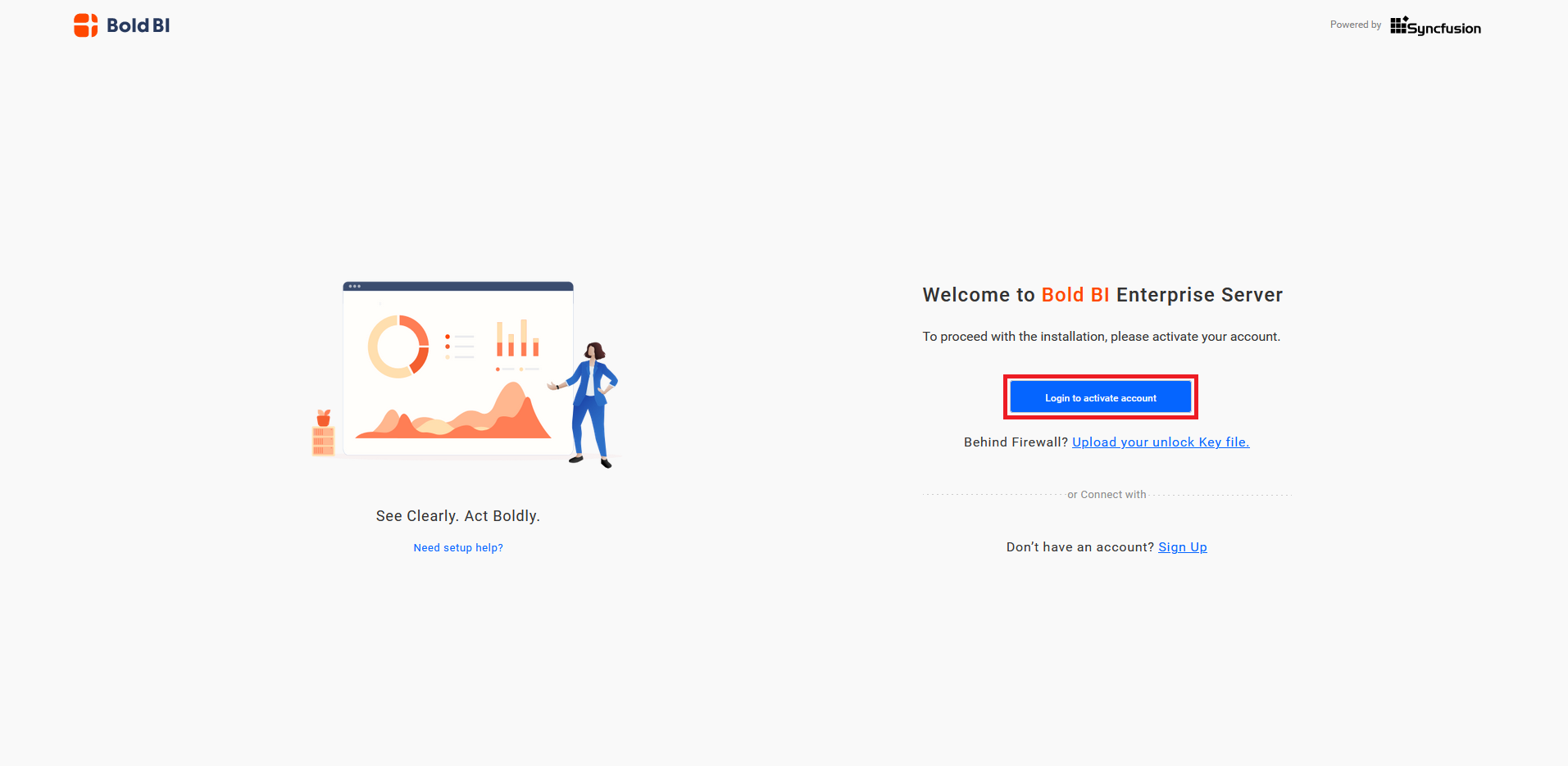
From the login window, select your account type and proceed to login.
- Syncfusion Login Credentials
- Microsoft
- Bold BI Login Credentials
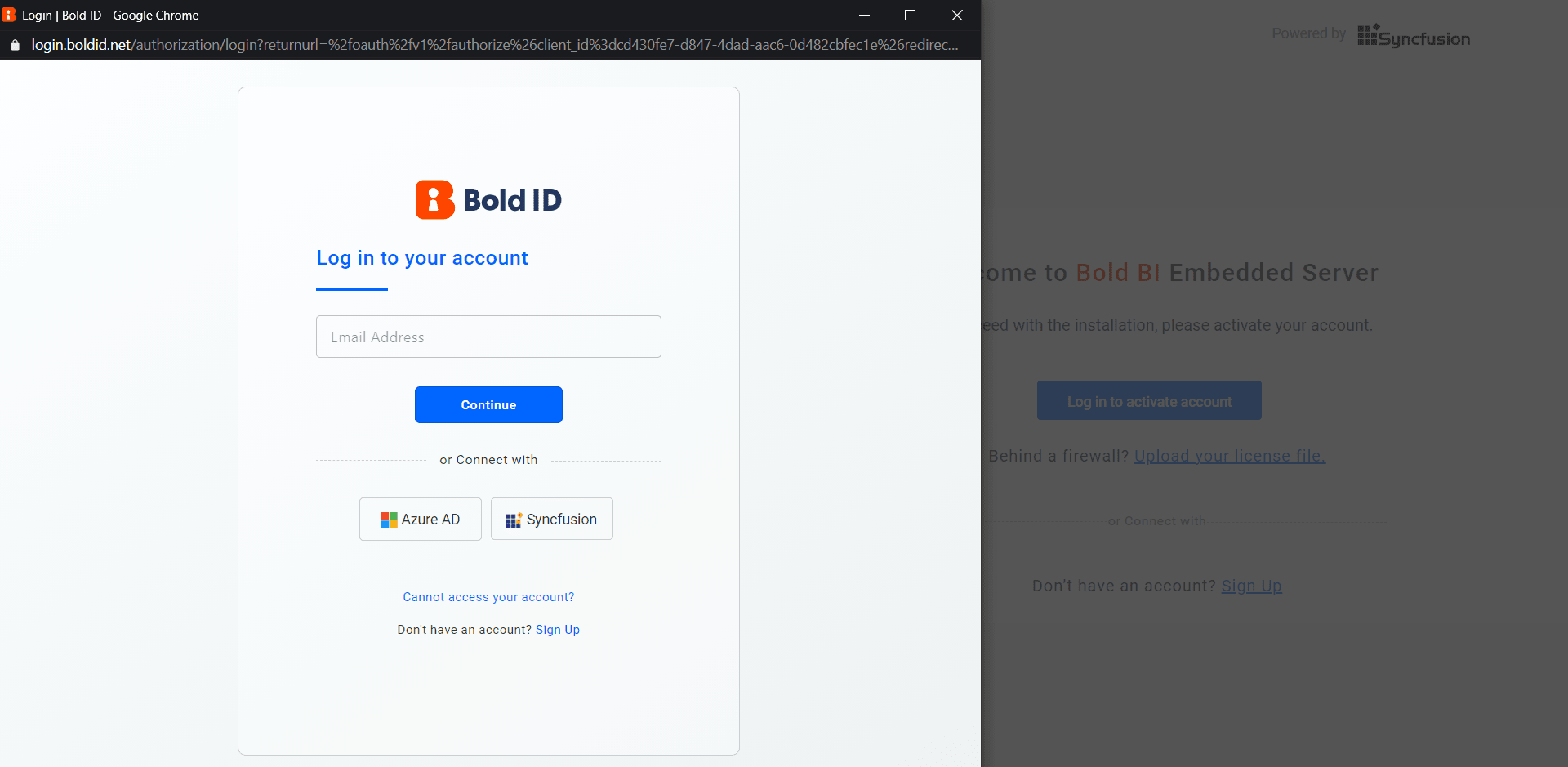
If you have multiple Bold BI licenses, then you will see this screen. To proceed with the application startup, select the corresponding license. Otherwise, you will be automatically redirected to the application startup screen.
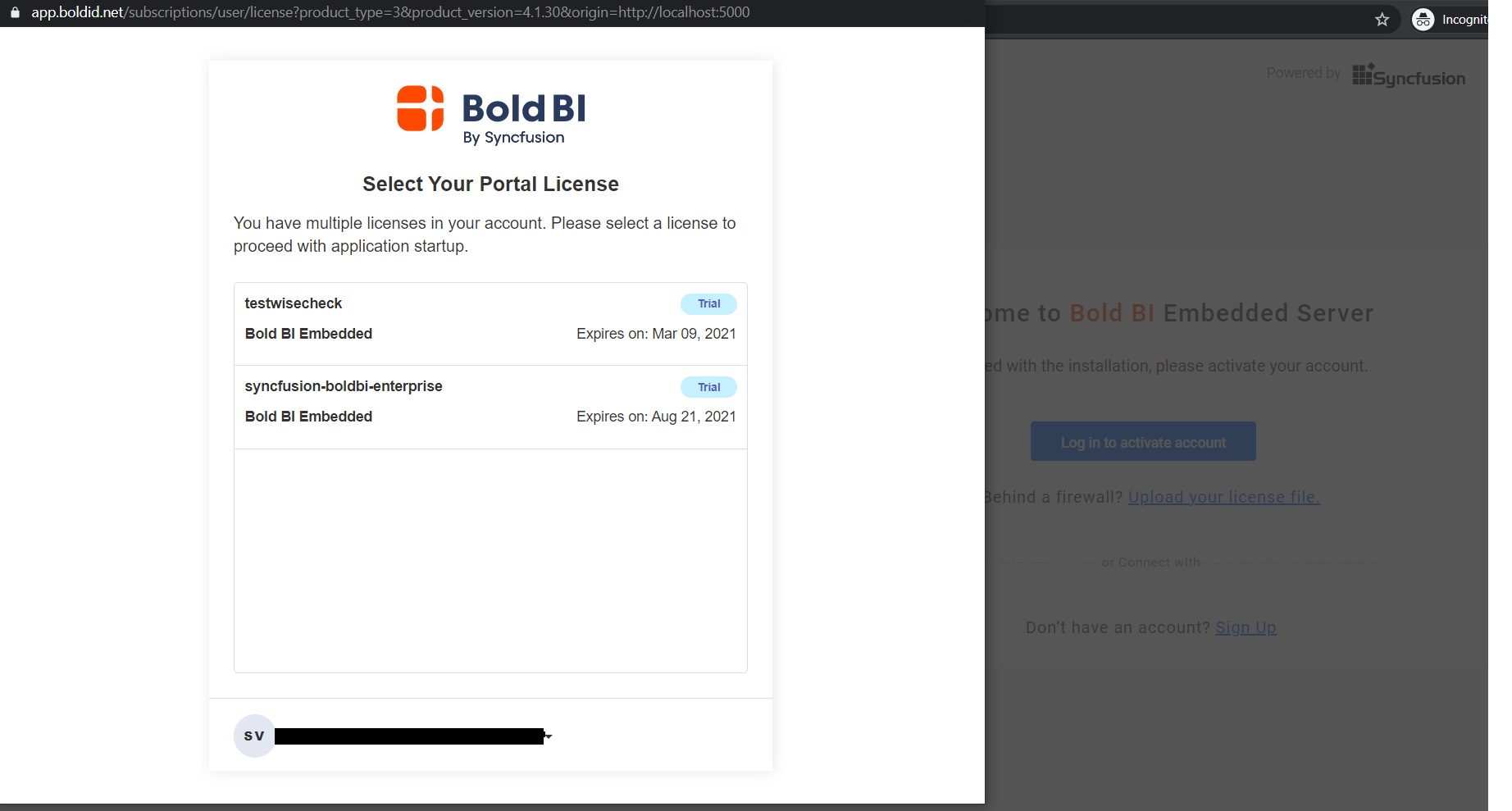
Offline Installation
NOTE: The offline unlock key will be available for download on your account page under the Active subscription section, by default.
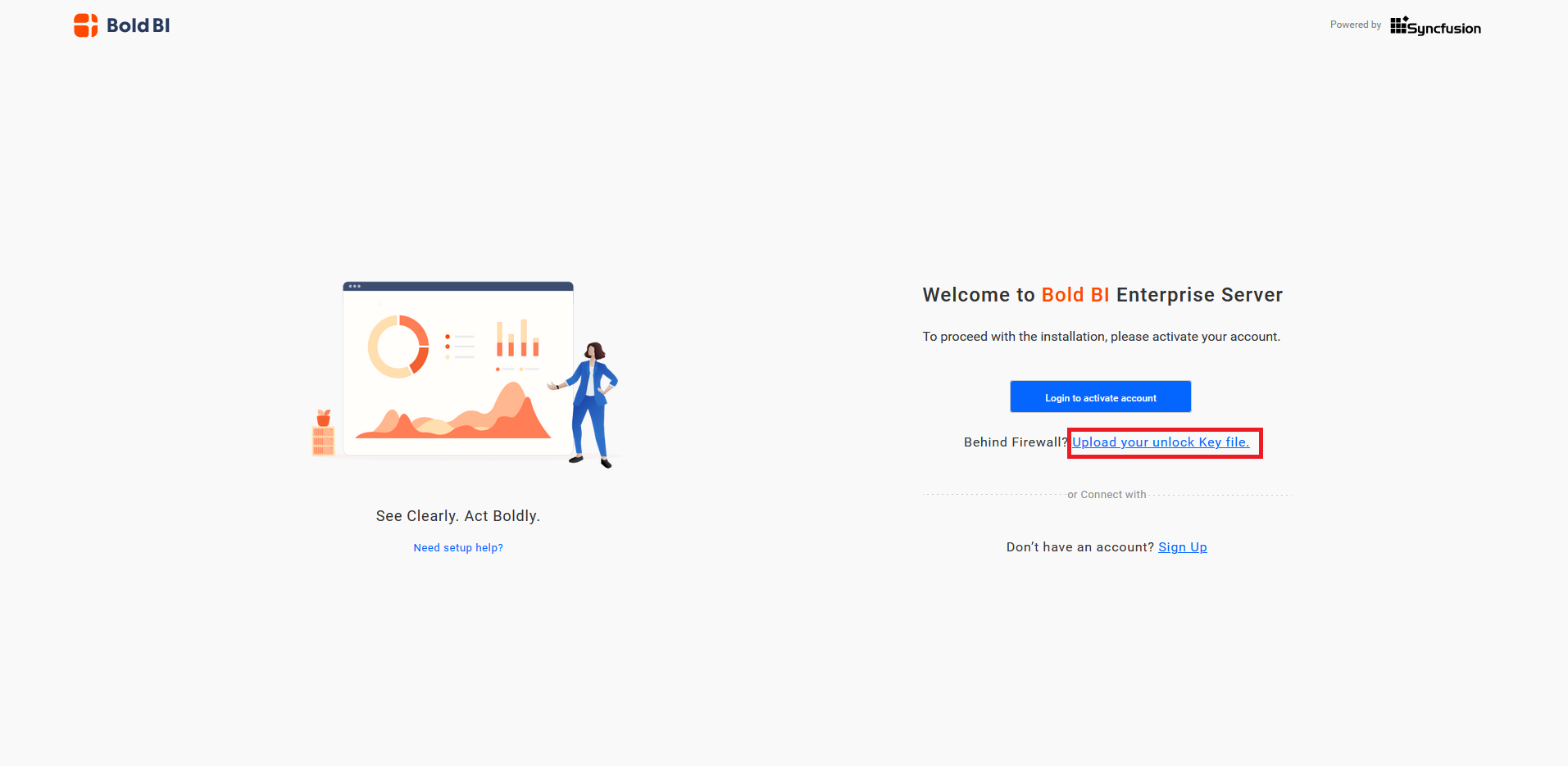
If you are installing Bold BI in firewall-restricted environments, you can use an offline unlock key to activate the account.
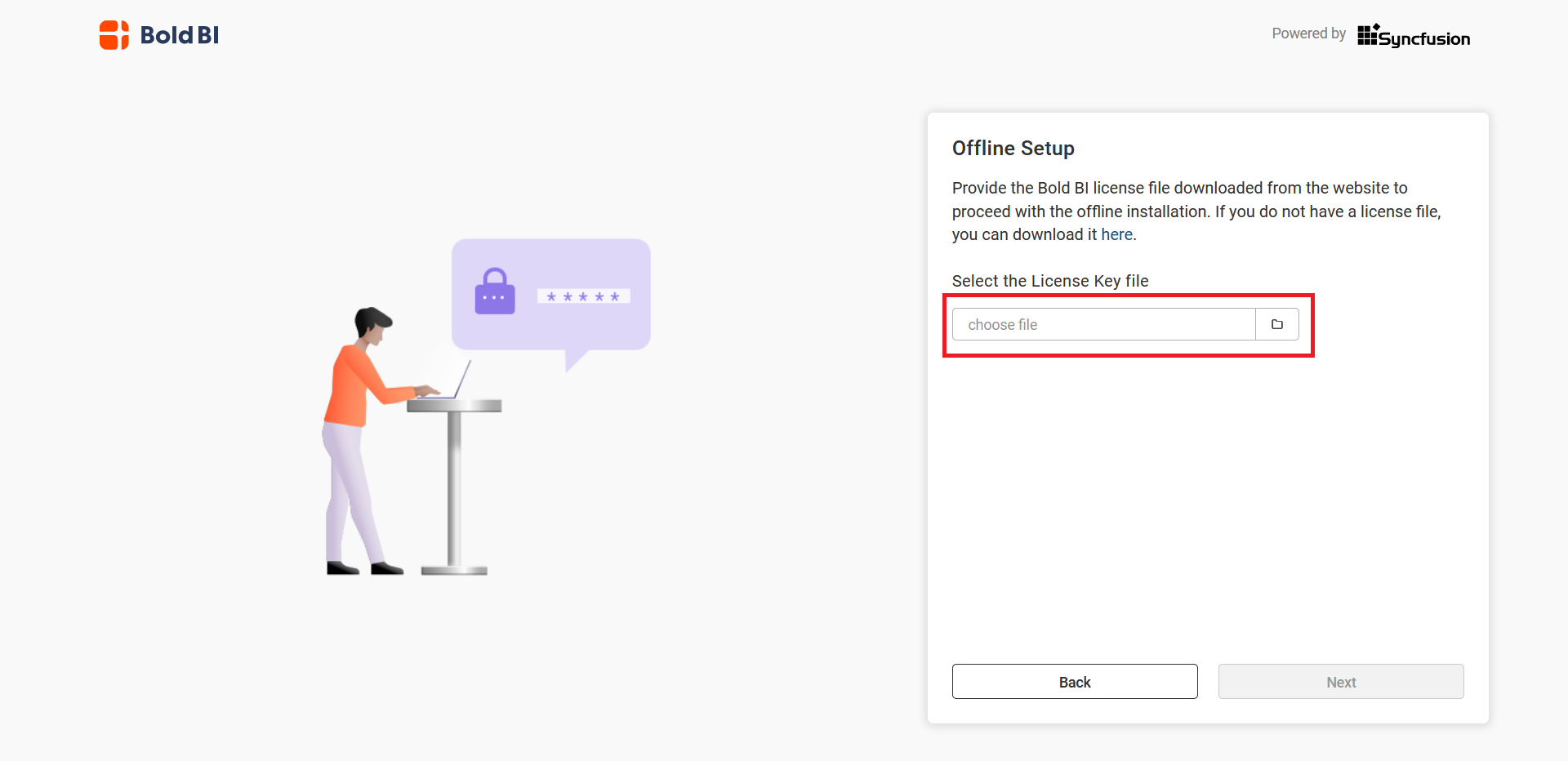
Once the unlock key has been uploaded, proceed to the next screen to configure the application.
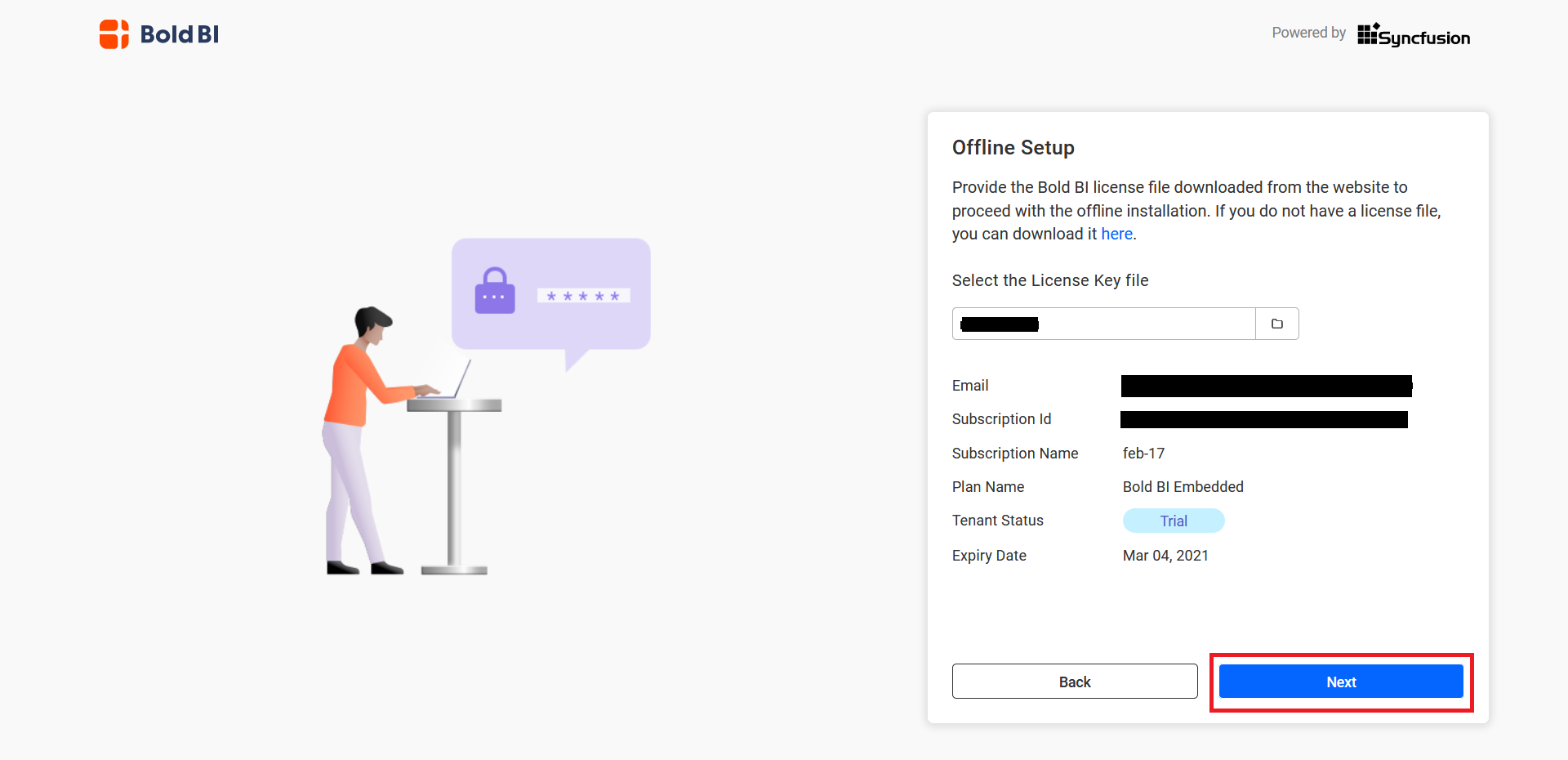
Possible errors cases and their solution
| Cases | Solution |
|---|---|
| Invalid File Type | Please upload a valid unlock key file (lic). |
| Unlock Key Expired | Your unlock key date was expired. Please download the new unlock key file and upload. |
NOTE: If you are experiencing any other issues, please contact us.
No Trial or New Account Request
If you do not have a Bold BI account, you can request a new trial by clicking on the pricing plans.
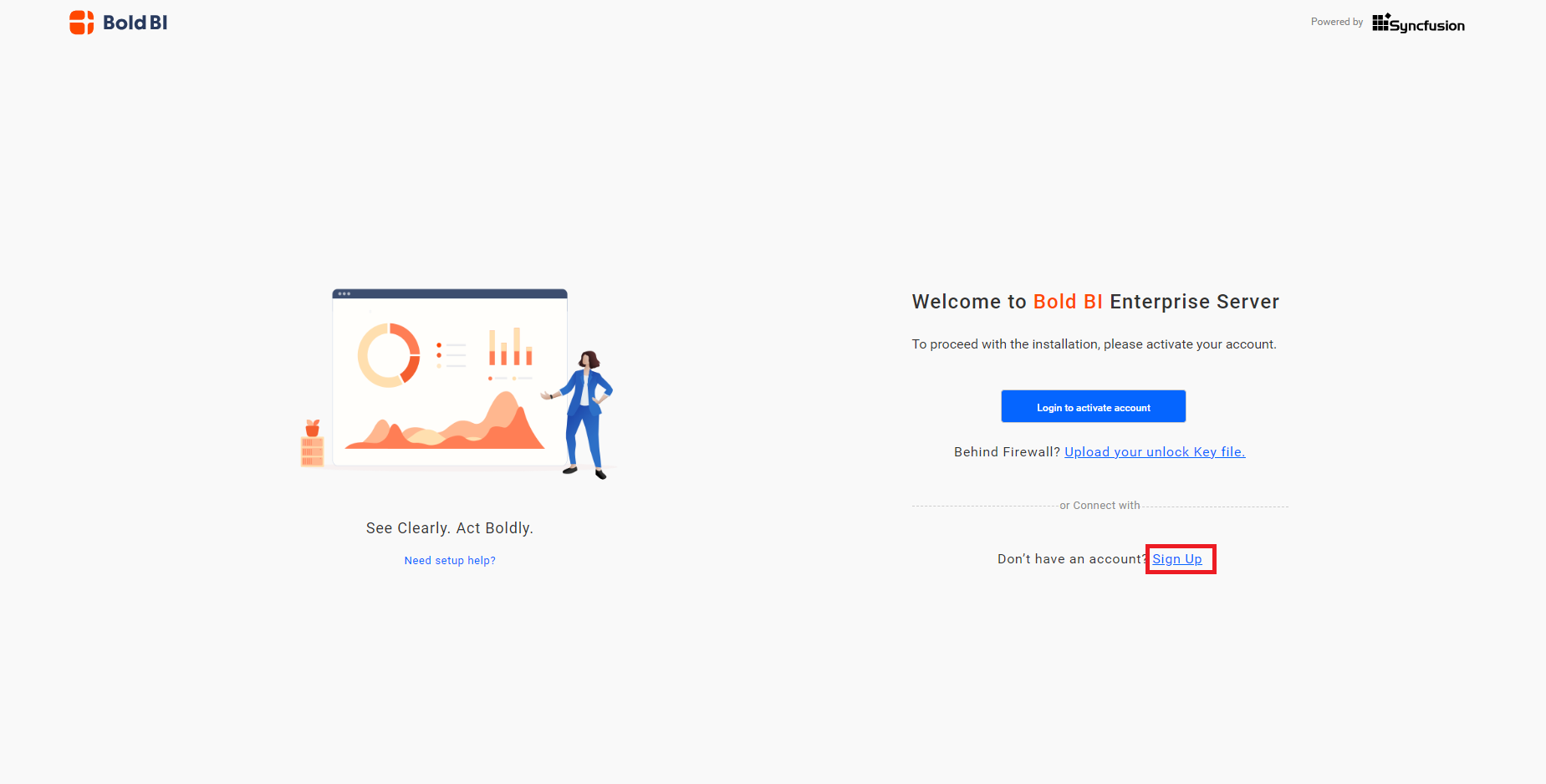
Application Startup for Bold BI Enterprise
The application startup screen helps you configure the admin account setup, database configuration, and storage configuration.
System Administrator Account
A new user should be created in order to access the Bold BI sites and dashboards, using the details mentioned in the following image.
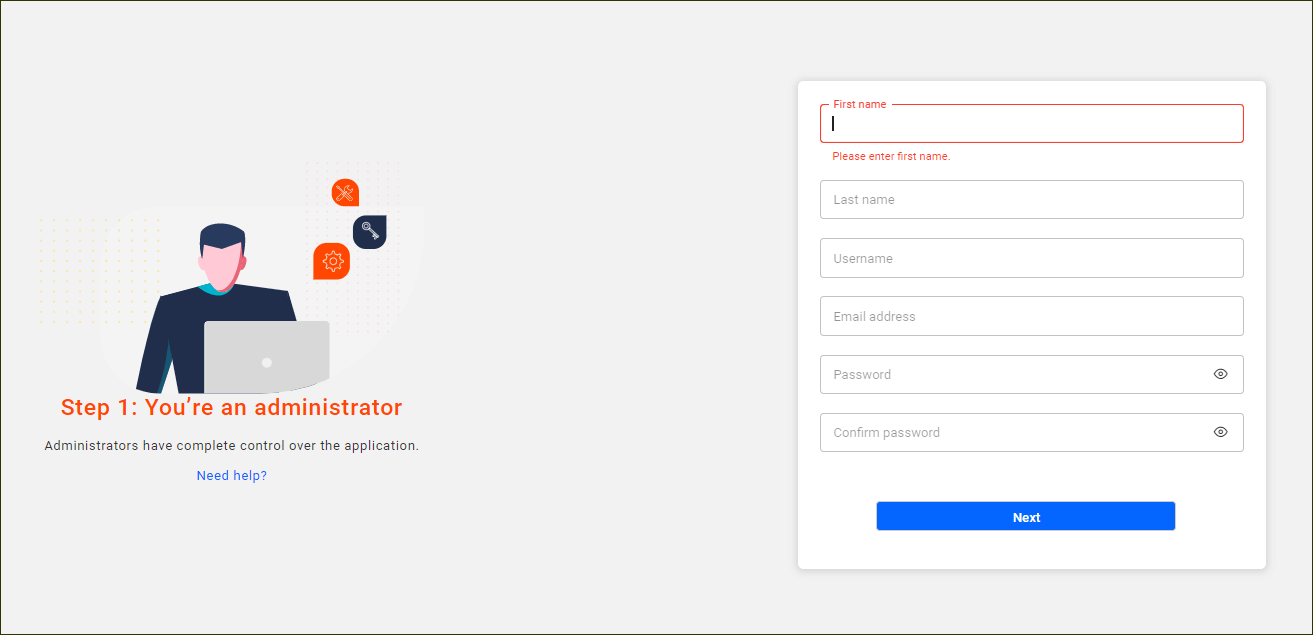
While creating this new user account, a new group called System Administrator will be created, and this group will have the following permissions.
- Create Dashboards
- Create Data Sources
- Create Schedules
- Create Slideshows
- Create Users
- Create Groups
- Manage Permissions for users and groups
By default, the newly created user account is assigned to this group.
Database Configuration
Database Mode Selection
Before configuring the database, determine the mode for managing tenant data in Bold BI. Your selection impacts how tenant data is stored, secured, and maintained.
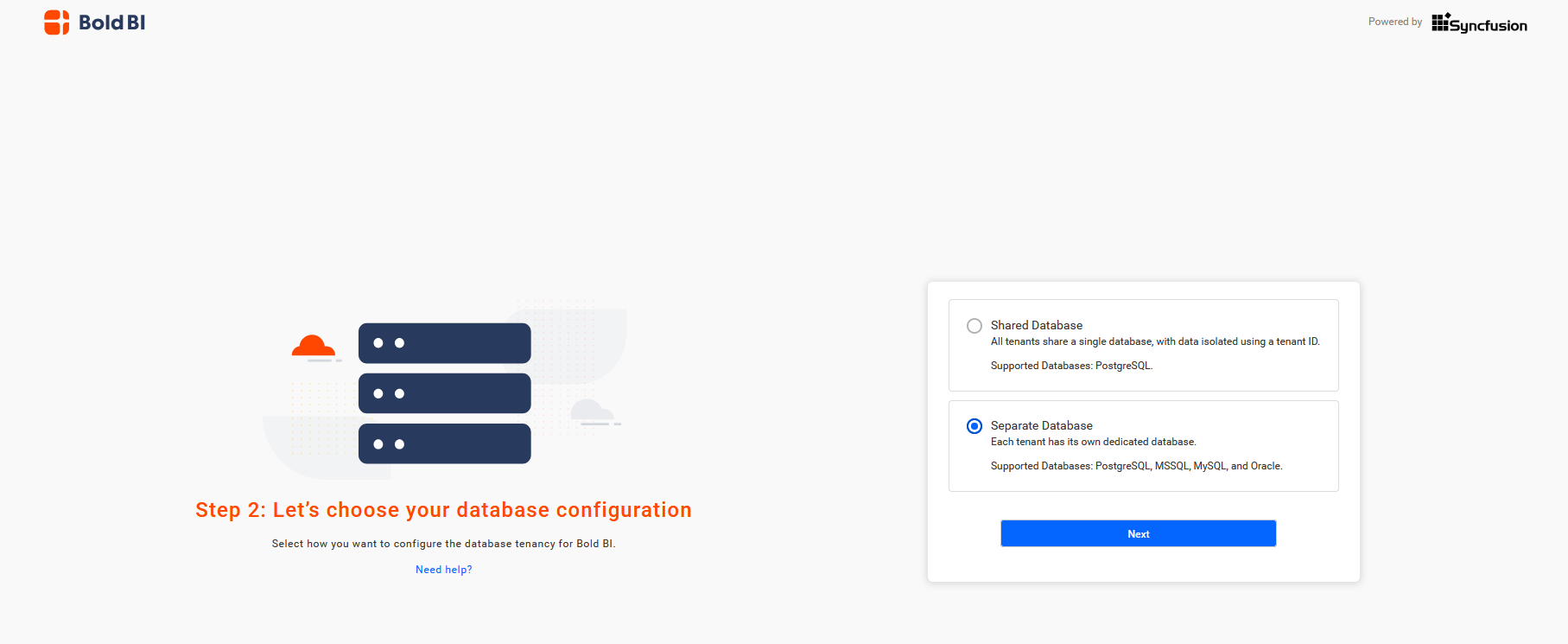
Shared Database Mode
In this mode, all tenants share a single database, with data logically separated using unique identifiers. This approach optimizes resource utilization, reduces infrastructure costs, and simplifies maintenance while maintaining data segregation. It is well-suited for scalability and efficient management. Supported Database: PostgreSQL
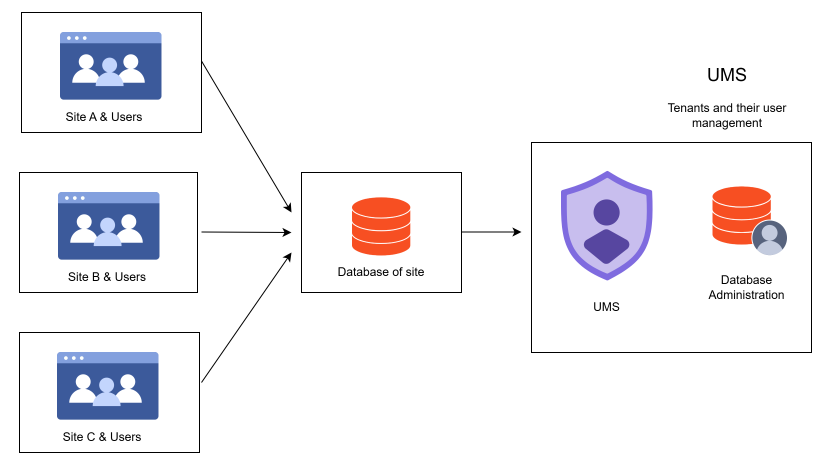
Separate Database Mode
With this mode, each tenant has a dedicated database, ensuring complete physical data separation. This provides enhanced security, independent management, and optimized performance for each tenant. However, it requires greater infrastructure investment and ongoing maintenance.
Supported Databases: MSSQL, PostgreSQL, MySQL, Oracle
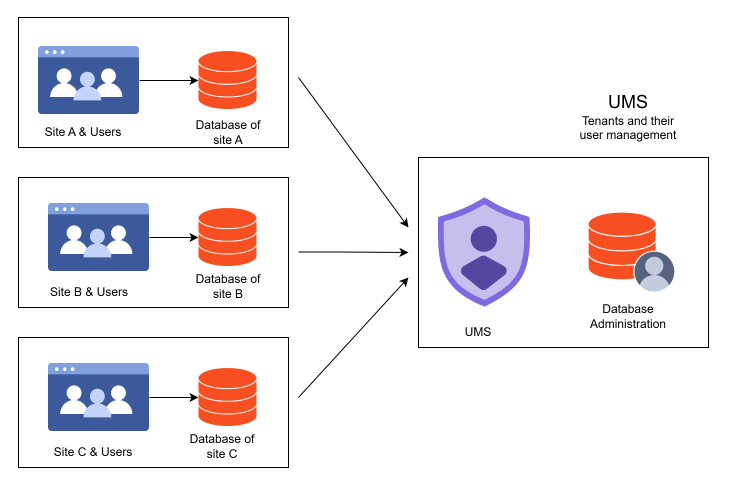
Once you select the preferred database mode, click Next to proceed to the database configuration step, where you will enter the required connection details.
This configuration helps you configure single or individual databases for Bold ID, Bold BI, and Data Store configuration.
The Bold ID database stores user identities, site details, and access information.
The Bold BI database stores the dashboards, users, and their access permissions.
The term DataStore refers to an intermediate database. Here, imported data from web data sources and statistic files is stored, and you can update the data using the scheduled refresh option. This database holds the data offline and helps you access the dashboards quickly.
Click here to see the available database options
To connect to an existing server instance, you have the following options:
- Create a new database.
- Use an existing database.
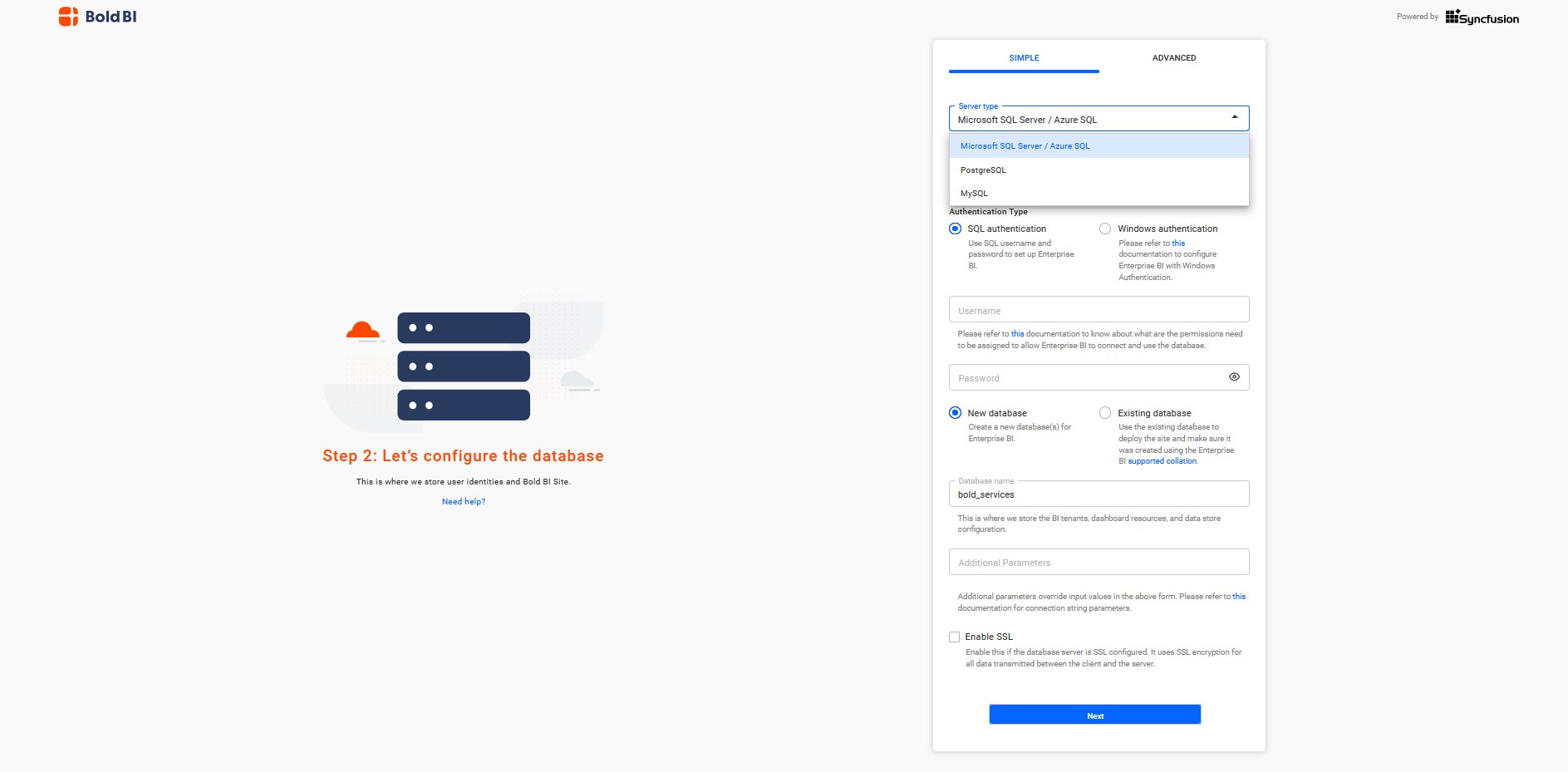
NOTE: The credentials used to connect to the server instance must have the permissions that are specified in this documentation.
IMPORTANT: The Bold BI server will accept all connections that use Transport Layer Security (TLS 1.1/1.2) encryption and AES Cryptography (128 bits). To support encrypted data transfer, select the
Enable SSLoption when configuring the Bold BI Server.
Here, the user can select either the simple or advanced mode for configuration.
Simple mode
Please configure a single database for Bold ID, Bold BI, and Data Store.
This configuration will store the user identities, site details, dashboards, data store, and users along with their access permissions in a single database.
By default, in Simple mode, the sites will be deployed in the local file system.
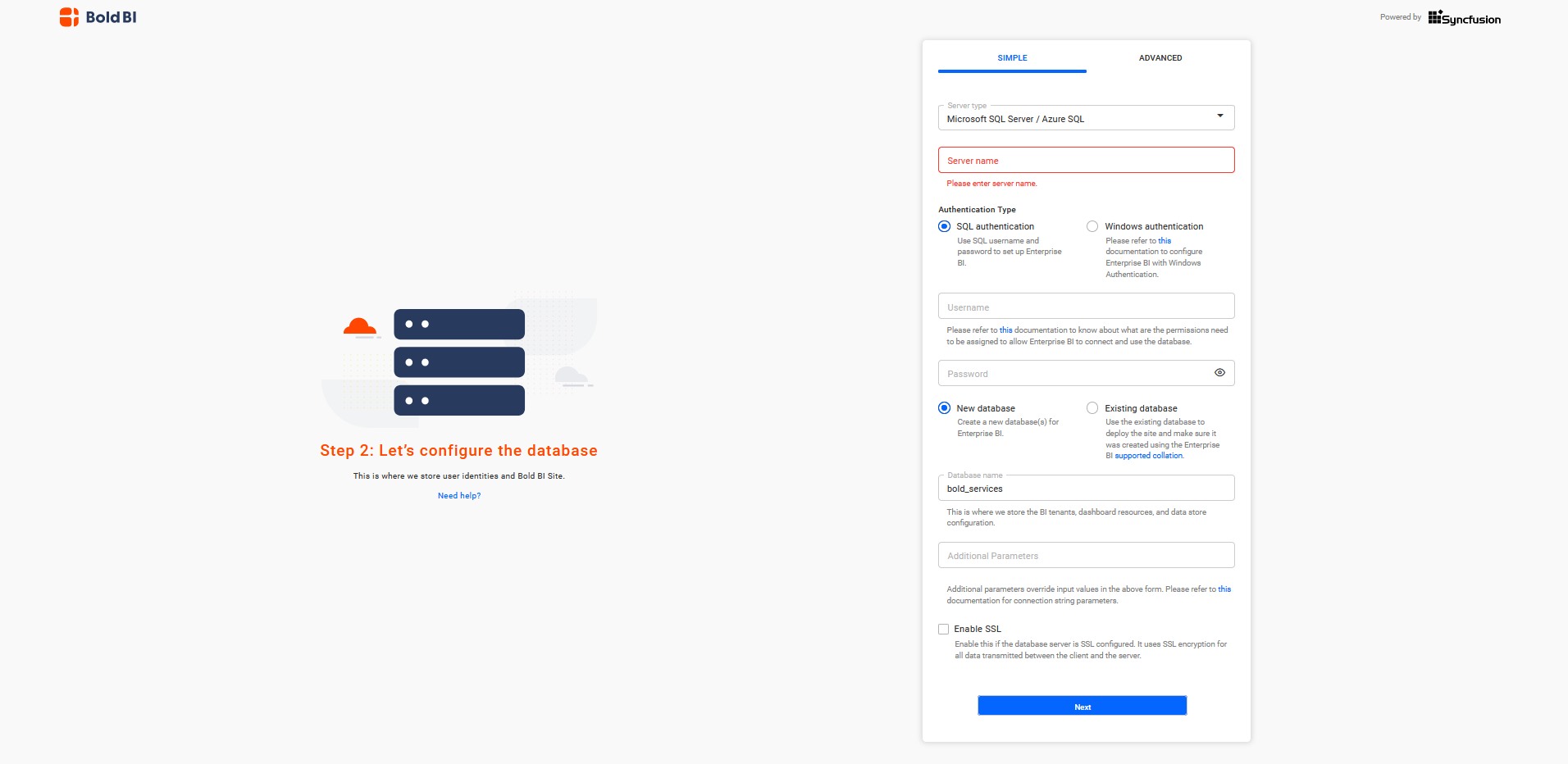
Advanced mode
Please configure individual databases for Bold ID, Bold BI, and Data Store. You can choose between the local file system and Azure Blob Storage for Bold ID and Bold BI.
The Bold ID database stores user identities and site details.
The Bold BI database stores dashboards, users, and their access permissions.
The Data Store database stores authentication information and data extracted from REST data sources.
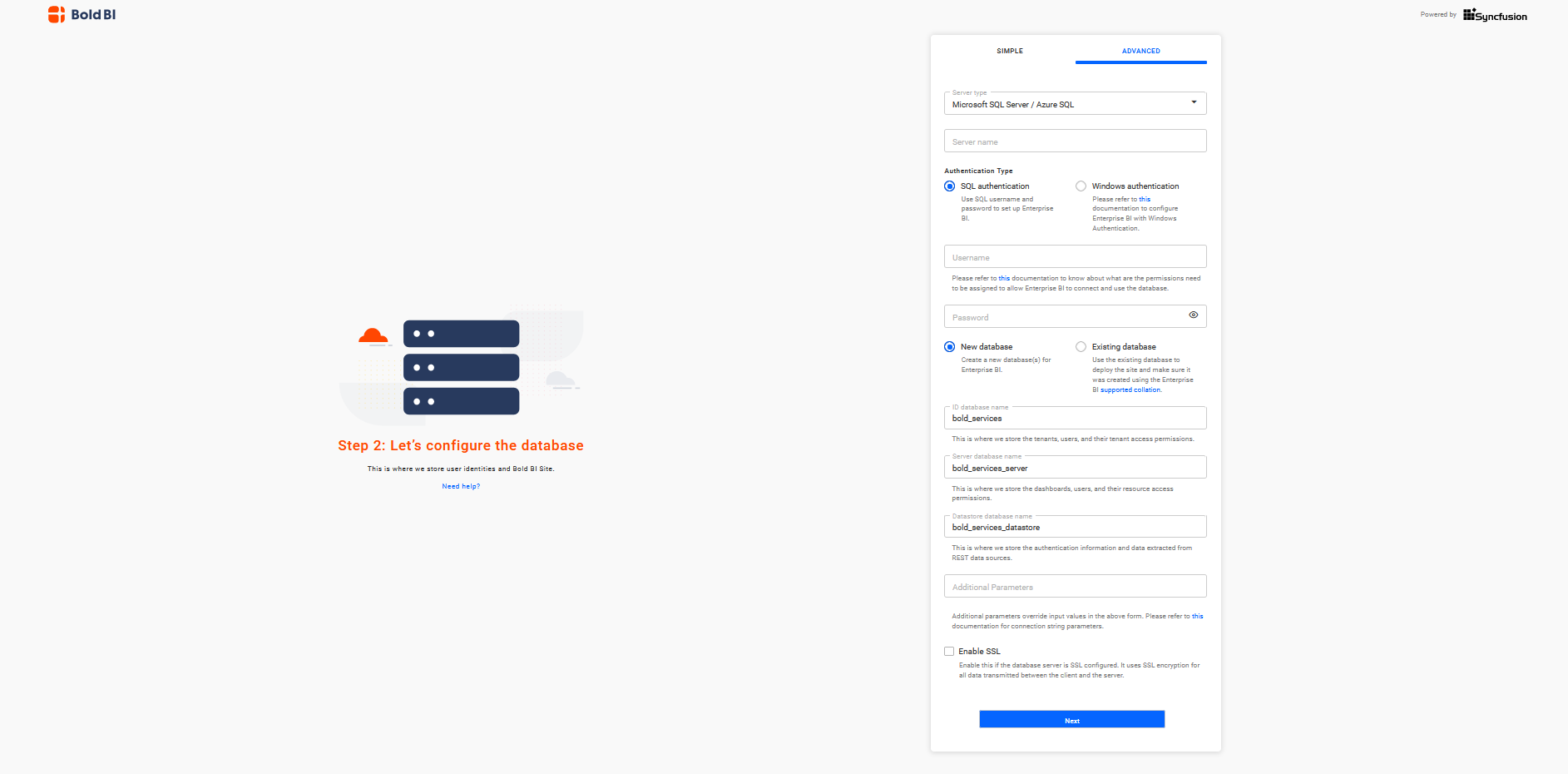
Storage Configuration
In advanced mode, the user can select the preferred storage type, either File Storage or Blob Storage, to store the resource in Bold ID and Bold BI.
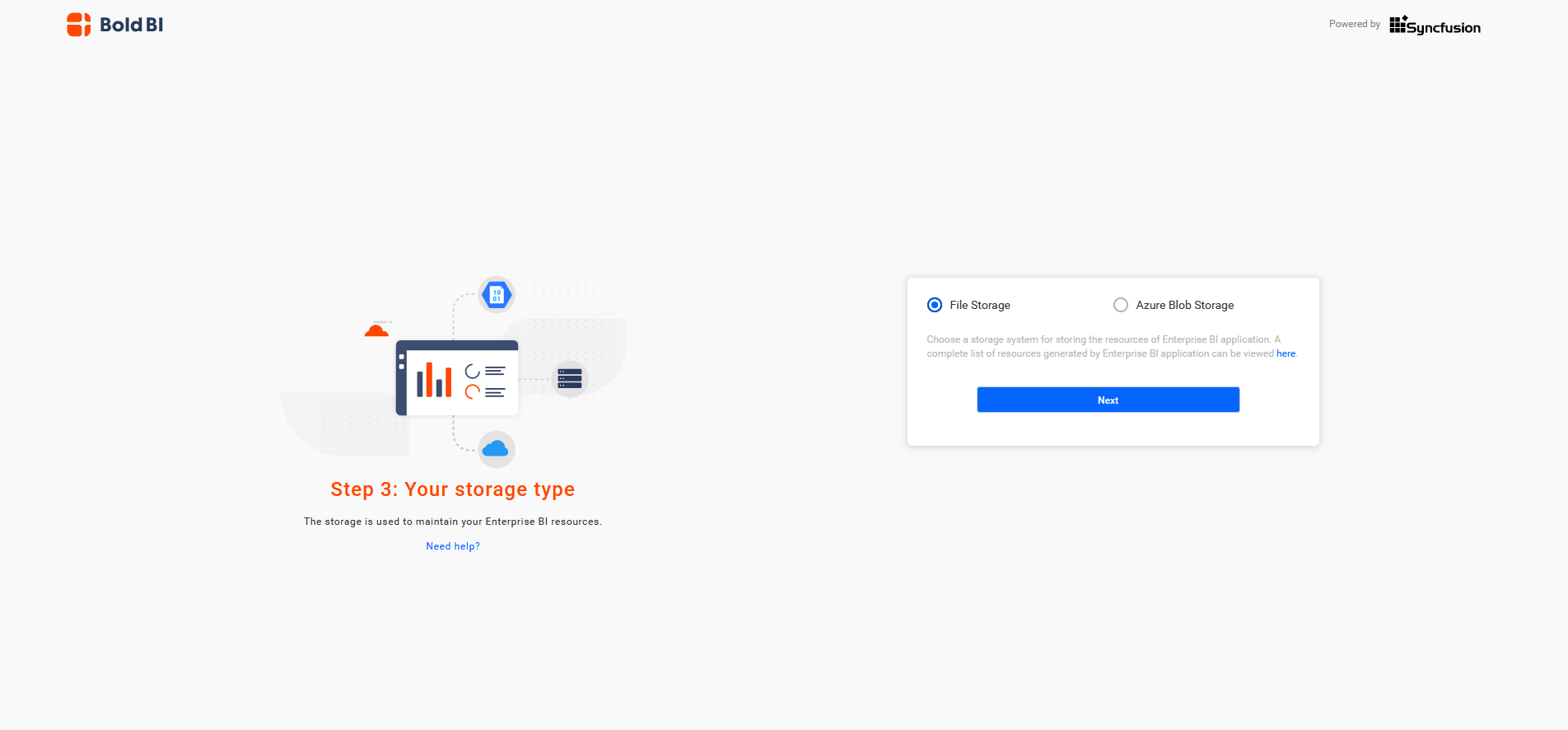
NOTE: The default storage type is
File Storage.
The user can select the desired storage option from the Storage Type dropdown by providing the required credentials in the respective fields.
Supported storage options include:
- Azure Blob Storage: Provide the Azure Blob credentials in the required field. You can find the details on how to configure the Azure Blob.
- Oracle Cloud Infrastructure (OCI) Object Storage: Provide the required Oracle credentials such as OCI Access Key, Secret Key, and Bucket Name, Root Folder Name, Region, NameSpace.
- Amazon S3: Enter the AWS Access Key, Secret Key, and Bucket Name, Root Folder Name, Region details to configure S3 storage. You can find the details on how to configure the Amazon S3.
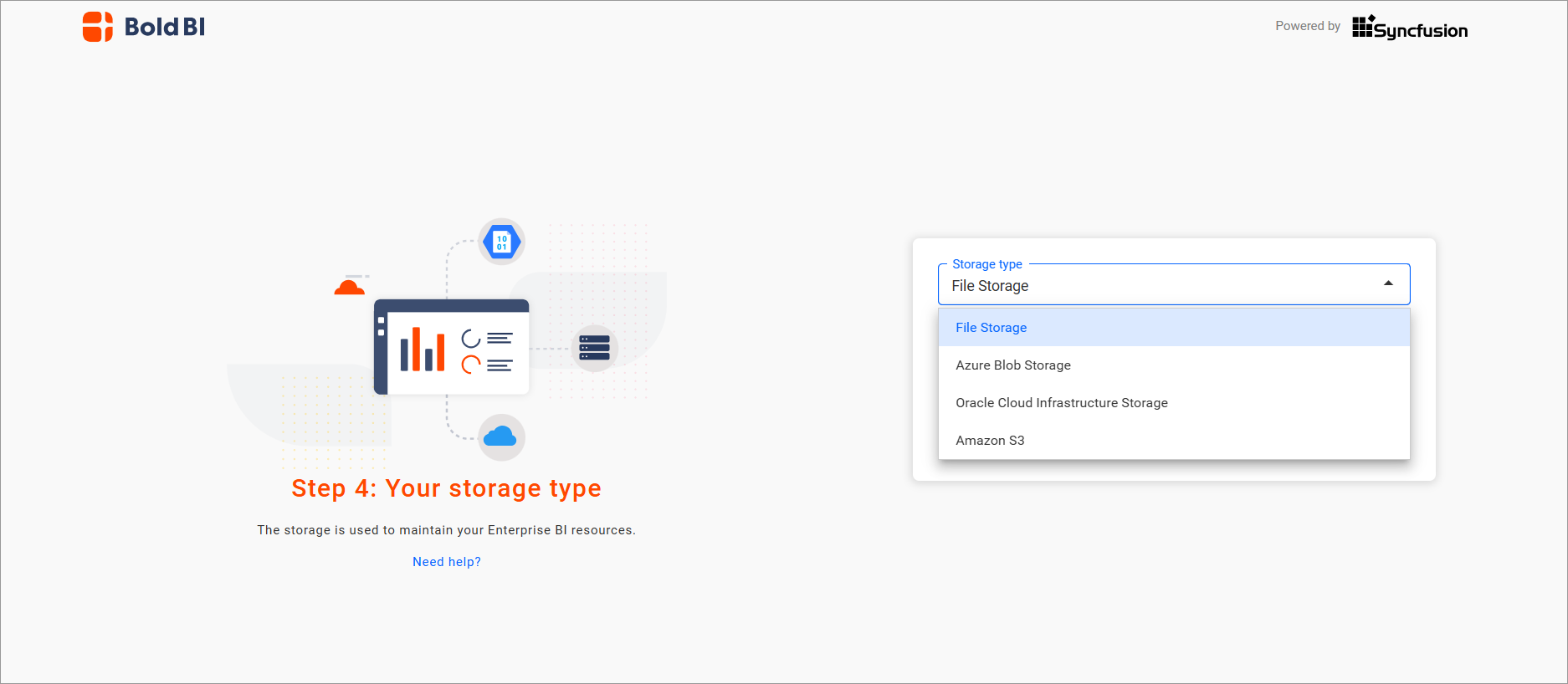
Database Options
- SQL Server, Azure SQL
- PostgreSQL, Azure-PostgreSQL
- MySQL, Azure-MySQL
- Amazon Aurora with PostgreSQL compatibility (Please click here to know how to configure AWS Aurora)
Supported Collation
Collation in a database server specifies how the data is sorted and compared in a database. The Bold BI application will perform the sorting using the general collation. The sorting results might not be accurate if the database server uses any other user specified rules or languages.
The Bold BI application requires specific collations based on the type of database server.
| Database | Collation |
|---|---|
| SQL Server, Azure SQL | SQL_Latin1_General_CP1_CI_AS, Latin1_General_100_CI_AS_SC |
| PostgreSQL, Azure-PostgreSQL | c, ucs_basic, pg_c_utf8 |
| MySQL | utf8mb4_general_ci, utf8mb4_unicode_ci |
NOTE: To connect to a PostgreSQL database, you need to install the PostgreSQL client library while installing the Bold BI Enterprise edition. Learn more here.
After clicking Next, the application will register and validate the site information. Once the process is completed, you will be able to:
- Manage sites – where you can manage the permissions for the sites you have created.
- Go to Dashboards - where you can create, edit, update the dashboards and so on.
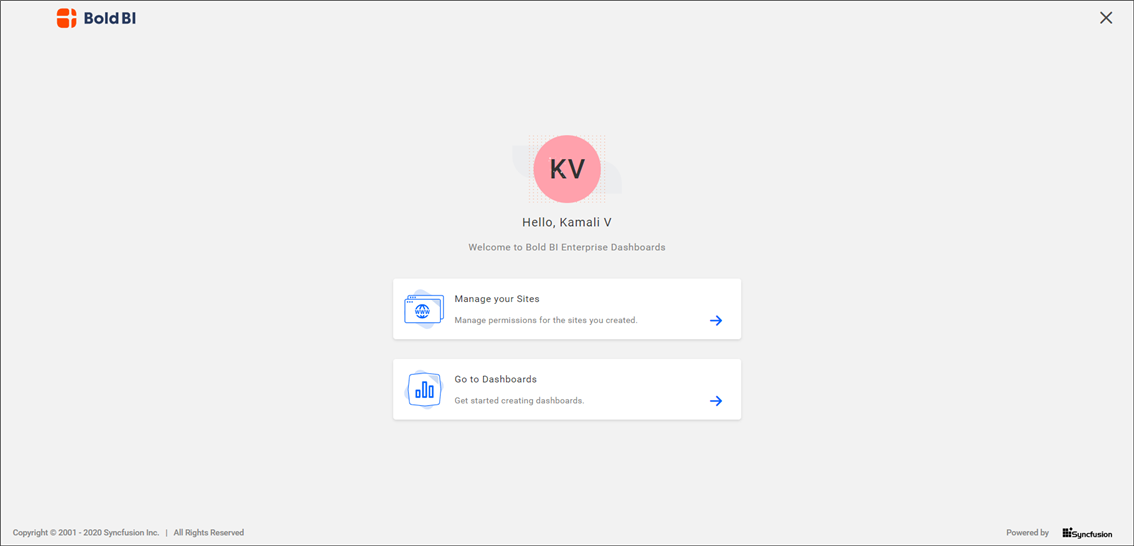
Activate Bold BI license
You can activate your account by using either your login credentials or an offline unlock key.
Open the Manage License Page - {domain}/ums/administration/license-settings
Next, select the Enterprise BI tab.
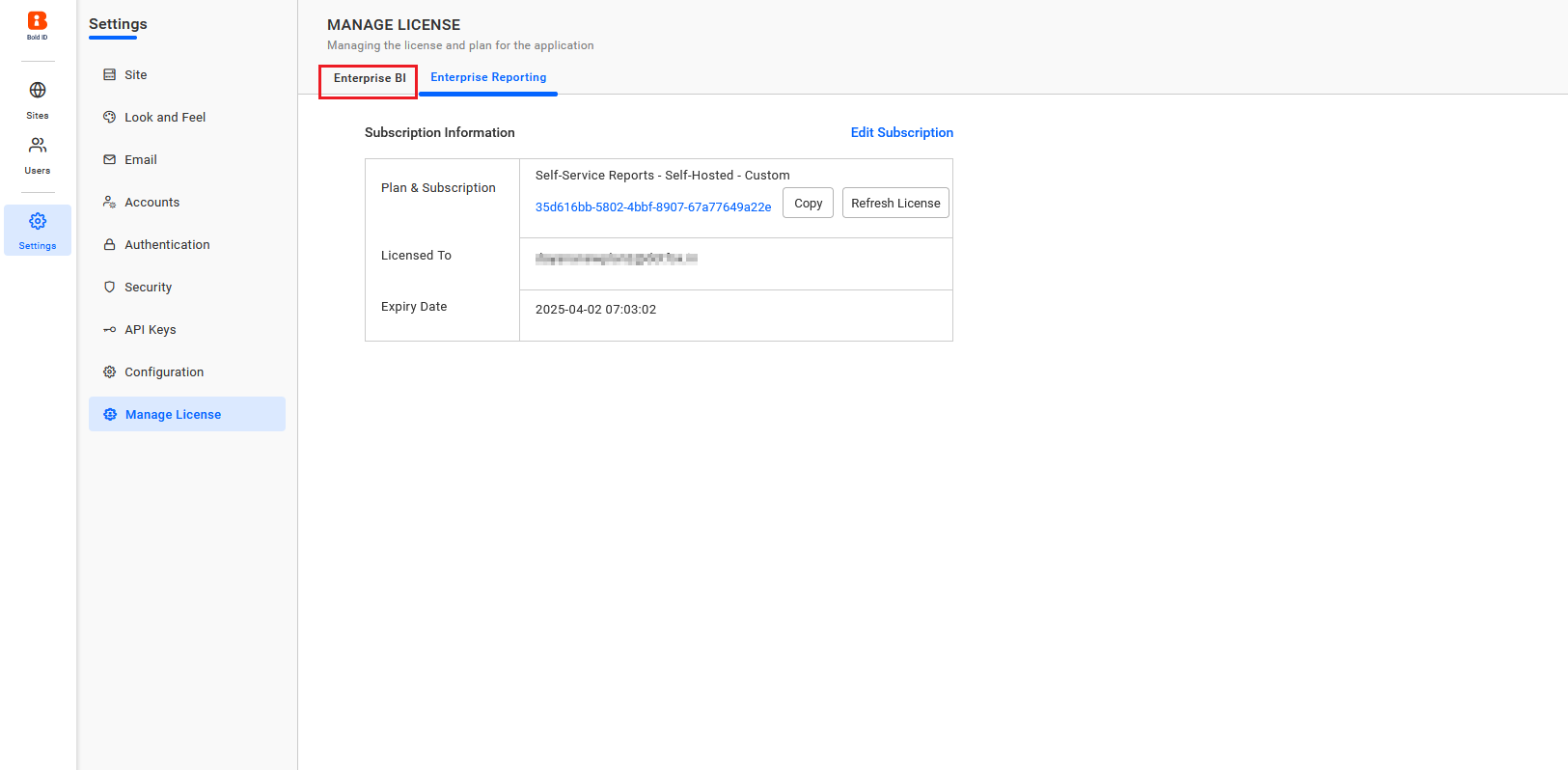
Activate Bold BI license using the login credential
To activate your subscription, you may sign in using your registered email address.
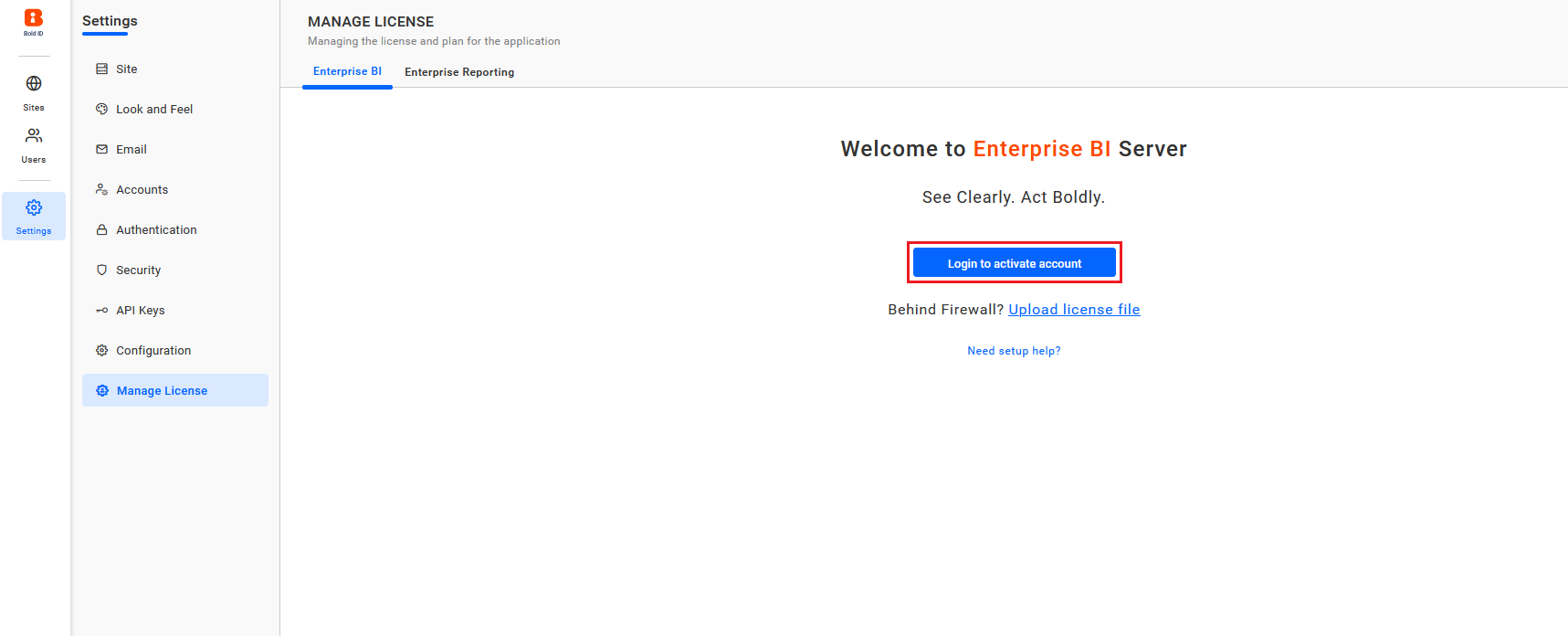
If you have multiple Bold BI licenses, you will see this screen and can select the corresponding license to activate Bold BI. Otherwise, your Bold BI license will be automatically activated.
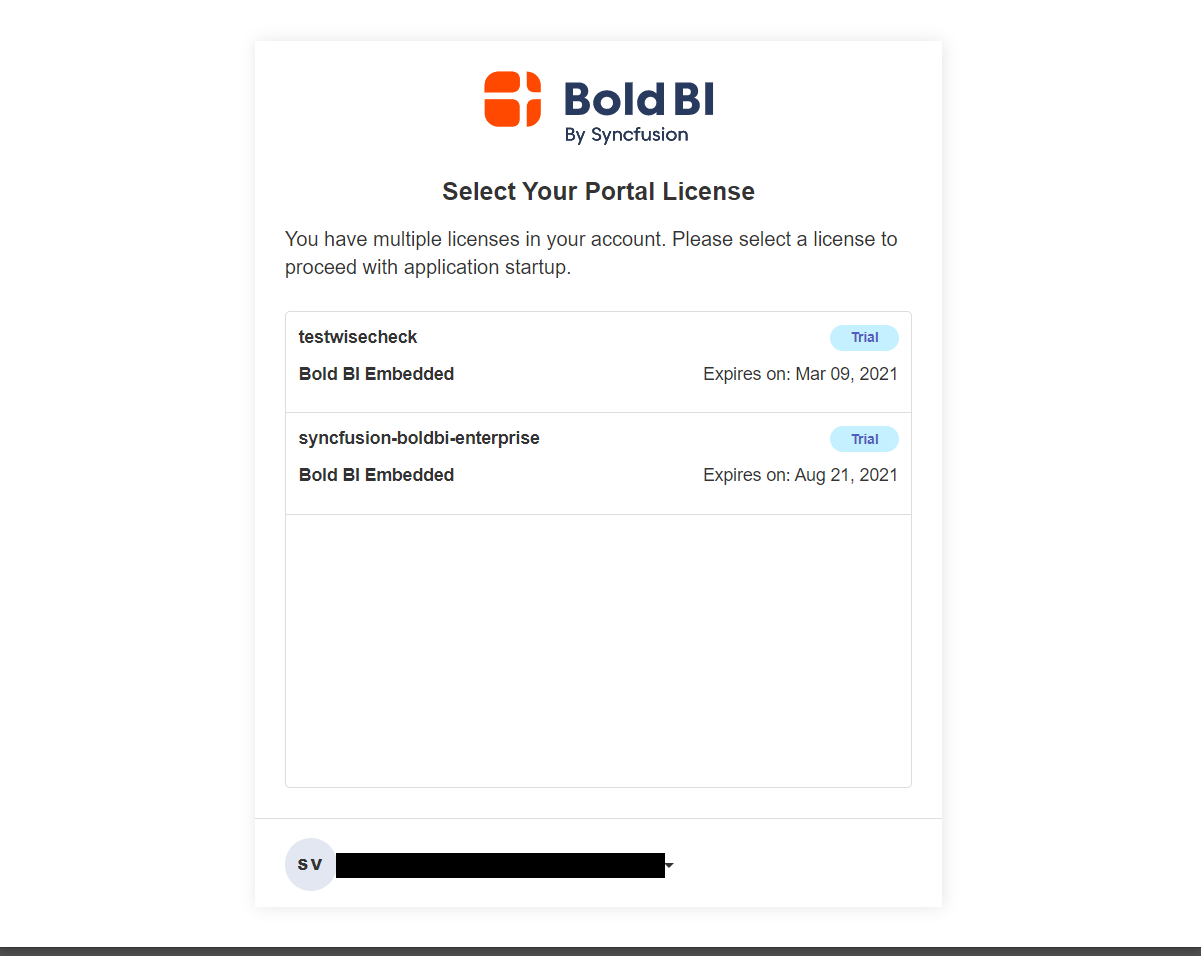
Upload unlock key
NOTE: The offline unlock key will be available for download on your account page under the Active subscription section, by default.
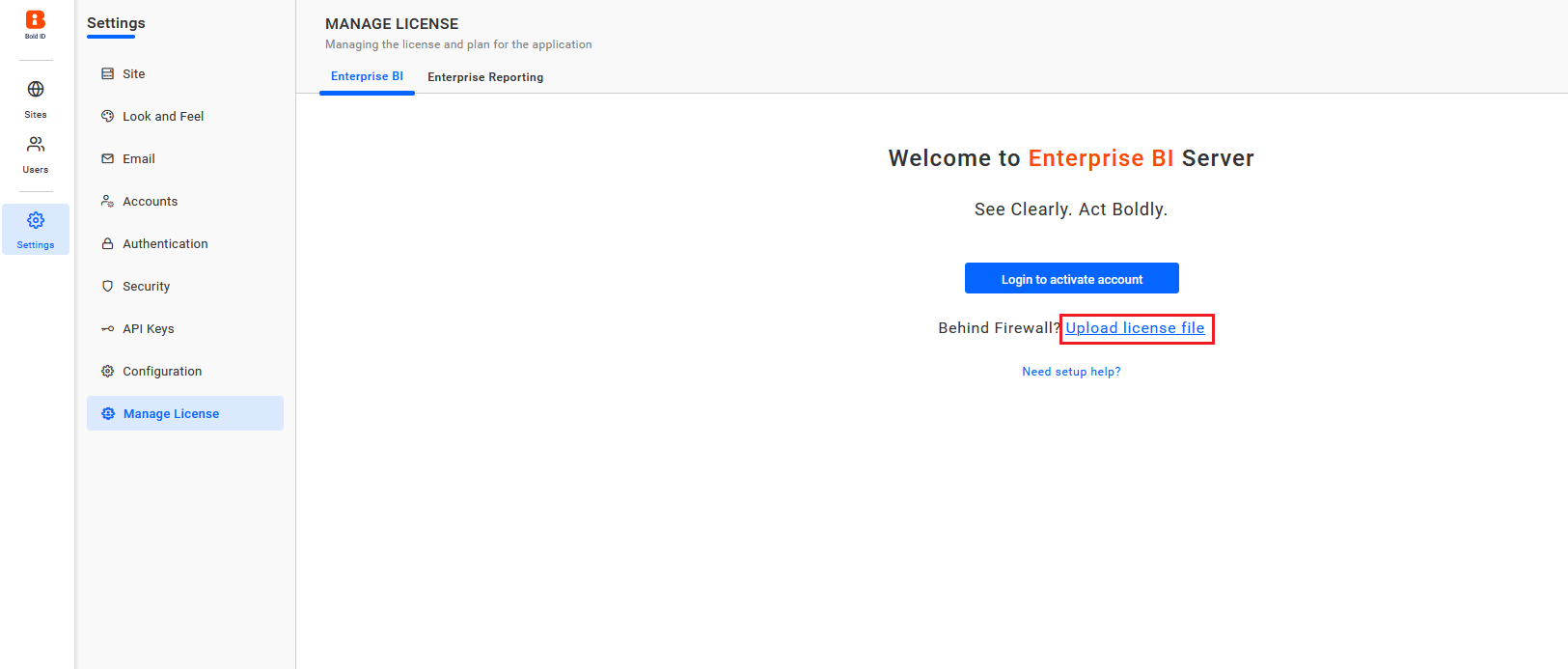
Once the unlock key has been uploaded, click on Upload License to activate the Bold BI License.
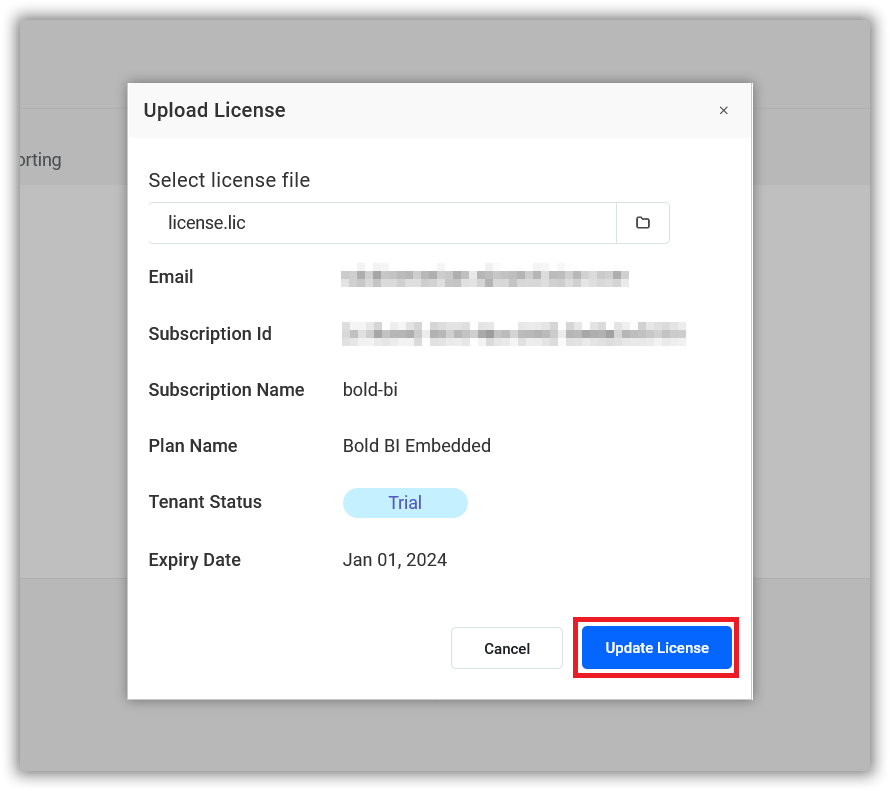
Create site
Please refer to this Create Site document to create more sites/tenants.